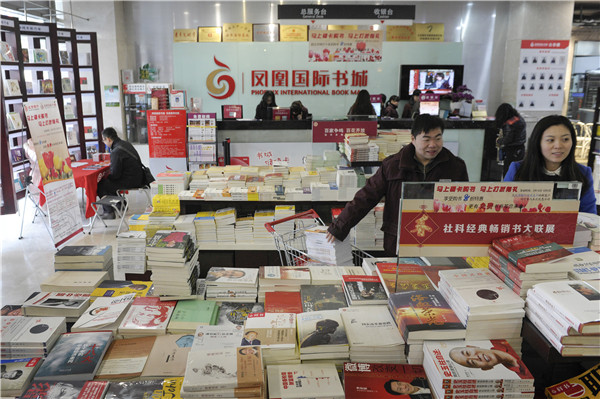 |
|
[Photo provided to China Daily] |
Chinese readers have criticized the advertisement. One of the most popular comments on Douban, which received 674 comments of support, says: "The advertisement is way too overblown ... I should be more careful and avoid buying such books. I'm not going to be taken in by advertising like this on the website again."
As China's publishing industry has matured over the past 10 years or so, marketing has become critical in turning books into bestsellers, often despite, rather than because of, the quality of the book in question.
"Over the past decade books have ceased being first and foremost cultural products and are now treated just like any other goods for sale, so the popularity of a book depends not only on its quality, but also on marketing, just like anything else," says Zuo Jing, author of Investigation into Bestselling Books from the Perspective of Mass Culture Study.
In recent years, book marketing in China has by and large stuck to a predictable path that takes in public debate, popular TV programs or films, famous people, pop culture, or "chicken soup".
The Chinese version of The Ferryman has sold 2 million copies in China, says Han Shasha, deputy general manager of Beijing White Horse Time Culture Development Co, which brought the book to China in 2015.
Han says that the popularity of the book is due in part to the movie directed by the Chinese writer Zhang Jiajia See You Tomorrow, which in Chinese is baiduren, the same name as the Chinese version of The Ferryman.
"Baiduren has become a hot word online, and that influenced the book's sales," she says.
Han says the target audience of the books by White Horse is teenagers and university students.
"If you can whet their appetite you catch the market," she says.
Young people have time and money for books, she says. After graduating from university, Chinese people in general spend little time and money on books, the exception being a few people in some cultural industries like publishing, whose number will not surpass 100,000, she says.
As a result, after The Ferryman became popular, some higher-brow readers also bought the book but thought it was childish, Han says.
"It's absolutely normal that some people love the book while others dislike it."
|
|
|
|
|
|
|
|
